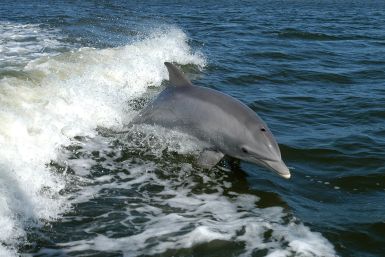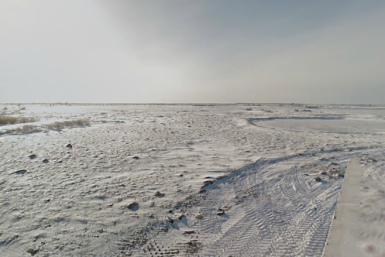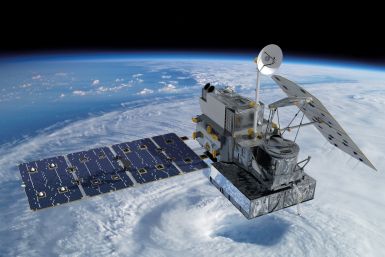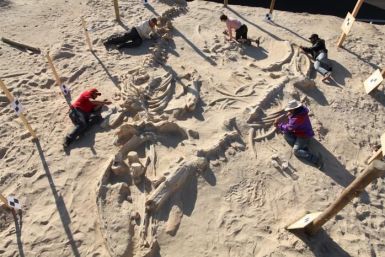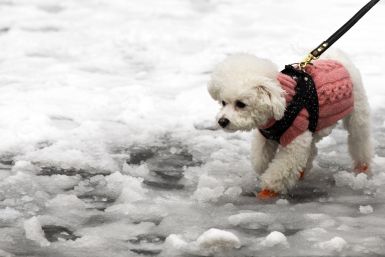An environmental impact assessment recommends three basic rules for seismic surveying in the Atlantic.
A recent study that examined the remains of a 500-year-old South American mummy suggests she was killed by blunt force trauma to the skull.
The Arctic town of Churchill, Manitoba, in northern Canada was captured on Google Maps, offering an unprecedented view of polar bears.
NASA and JAXA will launch the Global Precipitation Measurement mission of Feb. 27 and the live stream begins at 12 p.m. EST.
Supernovas of this kind can serve an important role in measuring the expansion of the universe, scientists say.
To reduce ship strikes in the channel, the study suggests slower speeds, reducing motor noise and avoiding whale-migration channels.
Polar Bear Day is celebrated worldwide every year on Feb. 27.
Ecologist Patrick Moore, a co-founder of activist group Greenpeace, says climate change is not caused by humans.
NASA announced the discovery of 715 new planets based on data collected by the Kepler space observatory.
The exotic black-and-white tegu, a lizard native to the tropical rain forests of South America, are breeding and eating their way through Hillsborough County, Fla. Experts fear the invasive reptile could displace other species that belong in The Sunshine State.
Researchers have discovered the culprit behind the death of 40 whales more than 5 million years ago.
The Quelccaya Ice Cap, which sits 18,000 feet above sea level, has become a symbol for global climate change because of its rapid decline.
Most know that a leap year occurs every four years. But here's a little history about the curiously inconsistent day of February 29th.
A recently discovered species of Australian marsupial, the Black-Tailed Antechinus, partakes in marathon mating sessions that can be fatal. The exertion raises the males’ stress hormone levels dramatically, eventually causing their systems to shut down.
Dogs have an area of their brains dedicated to understanding vocal nuances.
Scientists have detected radioactive cesium isotopes associated with the Fukushima radiation leak in Vancouver, B.C.
A long-term study undertaken by UCLA and the University of Aarhus suggest a relationship between the use of acetaminophen by pregnant women and certain behavioral disorders in their children.
The seemingly harmless trend is actually spreading lice between young people, seriously.
Researchers studying the teeth of 1,000-year-old German skeletons discovered bacteria and food particles entombed within calcified plaque.
A new study assesses radiation exposure and cancer risks near the Fukushima plant from 2012 onward.
NASA has set up a center in the Japanese island of Tanegashima for the Global Precipitation Measurement launch.
According to a new study of volcanoes’ effect on climate change, volcanic eruptions are the reason the average rate of global warming has slowed since 1998.
Successful writer, director and actor Harold Ramis died from complications due to autoimmune inflammatory vasculitis.
Astronomers observed a record-breaking lunar impact on Sept. 11, 2013.
New research into how primates evolved cognitive skills promotes the theory that primate and human intelligence originated from their need to meet certain challenges, like foraging for food.
Researchers have found the oldest piece of the Earth's crust yet discovered, a zircon crystal that is 4.4 billion years old.
Experts wonder whether a virus exhibiting polio-like symptoms that has been reported elsewhere in the world may have reached California.
Scientists found what they call "the oldest piece of earth" ever, a sliver of zircon offering incredible insight into the Earth as it formed.
The European Space Agency wants to clean up thousands of pieces of space debris that surrounds Earth.
New York’s melting snow water is a perfect conductor for electricity, and it can lead to electrocution.










